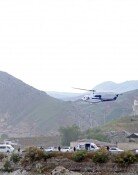[Op-Ed] Koreas 1st Space Rocket
When the Soviet Union launched the worlds first satellite Sputnik in 1957, the U.S. grew jealous and anxious. Washington attempted to launch a Vanguard rocket two months later, but the first-phase booster exploded at the launch pad just two seconds after liftoff. The U.S. eventually launched the Explorer the following year. Japan attempted to launch a satellite from 1966, but needed five tries before succeeding in 1970. The history of space expedition is dotted with stories of failure.
If the launch of the Korea Satellite Launch Vehicle 1 (KSLV-1) is successful, Korea will become just the tenth country to launch its own satellite into space using its own rocket and space station. North Korea attempted the same but its projectile turned out to be a missile. Since its rocket failed to enter orbit, North Korea failed to join the elite space club. Brazil, which showed strong enthusiasm for space development before South Korea, unsuccessfully launched rockets in 1997 and 1998. In 2003, a liquid fuel tank exploded at a Brazilian space station four days before the scheduled launch. While South Korea has delayed the launch of the KSLV-1, or Naro-ho, Iran launched a rocket in February to become the ninth country to join the global space club.
A growing number of people are expressing fears over the Naro-hos launch, which was delayed again from its scheduled blast off of Tuesday next week. The delay is okay because a successful launch is far more important. Consider that previous bids by other countries saw a success rate of just 27 percent. The problem is that the delays have always been due to unexpected variables on Russias part, Koreas technological partner in the project. While the second-phase rocket developed by Korea was ready for liftoff, the launch was postponed due to technical problems in the first-phase rocket (lower segment) supplied by Russia.
Korea made the right decision in choosing Russia as its technological partner. The U.S. declined to transfer technology to Korea, while France demanded an exorbitant amount of money. Russia takes pride in being a global leader in space development and a competitor of the U.S. in developing inter-continental ballistic and cruise missiles. The worksite of Khrunichev, which produced the Naro-hos first-phase rocket, was a defense supply plant used to produce ICBMs in the past. It was inevitable for Korea to purchase the first-phase rocket considering its inferior technological level, but it is regrettable that Korea did not designate a specific date for launch. To continue to be at the mercy of Russian mistakes even after paying a hefty cost is undesirable.
Editorial Writer Chung Sung-hee (shchung@donga.com)







